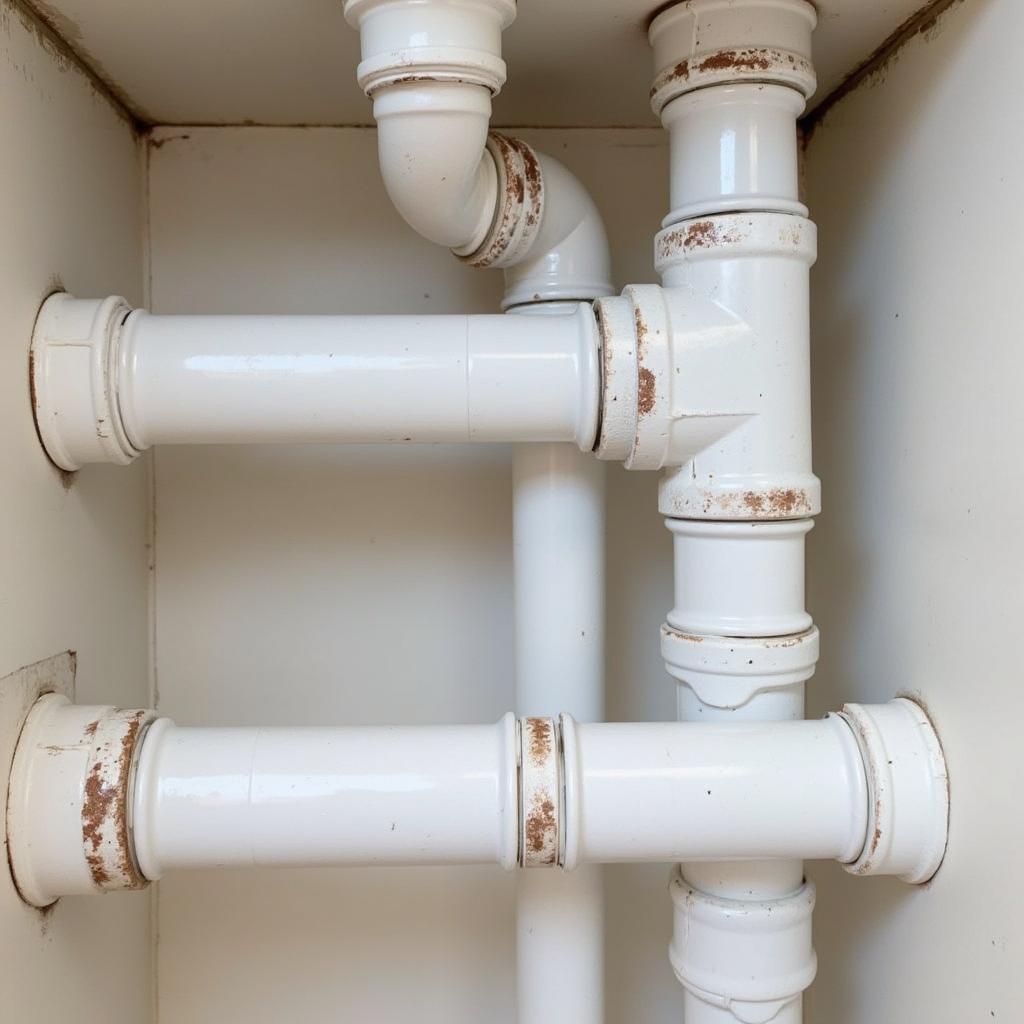Laundry Day Pipes: Maintaining Clean and Efficient Plumbing
November 24, 2024Laundry day often involves more than just separating whites and colors. It can also be a time when your plumbing system, specifically your Laundry Day Pipes, gets a workout. Understanding how to maintain clean and efficient laundry day pipes is crucial for preventing clogs, leaks, and costly repairs.
The Importance of Clean Laundry Day Pipes
Clean laundry day pipes are essential for a smooth and efficient laundry routine. Blocked pipes can lead to slow draining, overflowing washing machines, and even unpleasant odors.  Clean Laundry Day Pipes
Clean Laundry Day Pipes
Over time, lint, detergent residue, and other debris can accumulate inside your laundry day pipes, restricting water flow and creating a breeding ground for bacteria. This buildup can eventually lead to complete blockages, requiring professional intervention. Regular maintenance can prevent these issues and extend the life of your plumbing system.
Preventing Clogs in Your Laundry Day Pipes
Preventing clogs is much easier and less expensive than dealing with a plumbing emergency. Here are some simple steps you can take to keep your laundry day pipes clear:
- Use a lint trap: A lint trap catches most of the lint produced during washing cycles, preventing it from entering the pipes. Clean the trap after every load to ensure optimal performance.
- Avoid overloading the washing machine: Overloading puts extra strain on the motor and increases the amount of lint produced, potentially leading to clogs.
- Flush the pipes regularly: Pouring hot water down the drain once a month helps dissolve any accumulated detergent residue or soap scum. You can also use a mixture of baking soda and vinegar for a more thorough cleaning.
- Be mindful of what you wash: Avoid washing items that shed excessive lint, such as towels and blankets, in quick succession.
Signs of Trouble with Your Laundry Day Pipes
Recognizing the signs of trouble can help you address issues early on before they escalate into major problems. Here are some common indicators that your laundry day pipes need attention:
- Slow draining: If your washing machine takes longer than usual to drain, it could indicate a partial blockage in the pipes.
- Gurgling sounds: Gurgling or bubbling sounds coming from the drain are often a sign of trapped air caused by a clog.
- Unpleasant odors: A persistent sewer-like smell emanating from the drain can be a sign of bacteria buildup in the pipes.
- Overflowing washing machine: An overflowing washing machine is a clear indication of a severe blockage that requires immediate attention.
Dealing with a Clogged Laundry Drain
If you’re facing a clogged laundry drain, here are a few things you can try:
- Plunger: A plunger can sometimes dislodge minor clogs. Use a cup plunger specifically designed for sinks and tubs.
- Drain snake: A drain snake, also known as a plumber’s snake, is a flexible tool that can reach further down the drain to break up or retrieve clogs.
- Chemical drain cleaner: Chemical drain cleaners can dissolve some types of clogs, but use them with caution as they can be harsh on pipes and harmful to the environment.
If these methods don’t resolve the issue, it’s best to call a professional plumber.
“Regular maintenance is key to preventing plumbing problems. A little preventative care can save you a lot of headaches and expense down the road,” advises John Smith, a licensed plumber with over 20 years of experience.
Choosing the Right Pipes for Your Laundry Room
Selecting the right pipes is crucial for long-term plumbing efficiency. PVC (polyvinyl chloride) pipes are a popular choice for laundry day pipes due to their durability and resistance to corrosion. They are also relatively inexpensive and easy to install.
“Investing in quality pipes and proper installation is an investment in the longevity of your plumbing system,” says Jane Doe, a plumbing expert and author of “The Homeowner’s Guide to Plumbing.”
Conclusion
Maintaining clean and efficient laundry day pipes is essential for a hassle-free laundry experience. By following these simple tips and addressing issues promptly, you can prevent clogs, leaks, and costly repairs. Remember, regular maintenance is the key to keeping your laundry day pipes flowing smoothly.
FAQ
- How often should I clean my lint trap?
- What should I do if my washing machine is overflowing?
- Can I use chemical drain cleaners on PVC pipes?
- How often should I flush my laundry day pipes?
- What are the signs of a clogged laundry drain?
- What type of pipes are best for laundry rooms?
- When should I call a professional plumber?
Situations involving common questions:
- Slow draining washing machine: This could be due to a build-up of lint, hair, or other debris in the drain pipe.
- Gurgling sounds in the drain: This is often a sign of a partial clog, as air is trapped and released as water flows through the restricted area.
- Unpleasant smells coming from the drain: This could indicate a build-up of bacteria and organic matter in the pipes.
Other helpful resources:
- Article: How to prevent plumbing emergencies
- Article: Choosing the right washing machine for your needs
When you need help, please contact Phone Number: 0915117113, Email: [email protected] Or visit us at: Group 3, Binh An Hamlet, Phu Thuong, Viet Nam, Binh Phuoc 830000, Vietnam. We have a 24/7 customer service team.